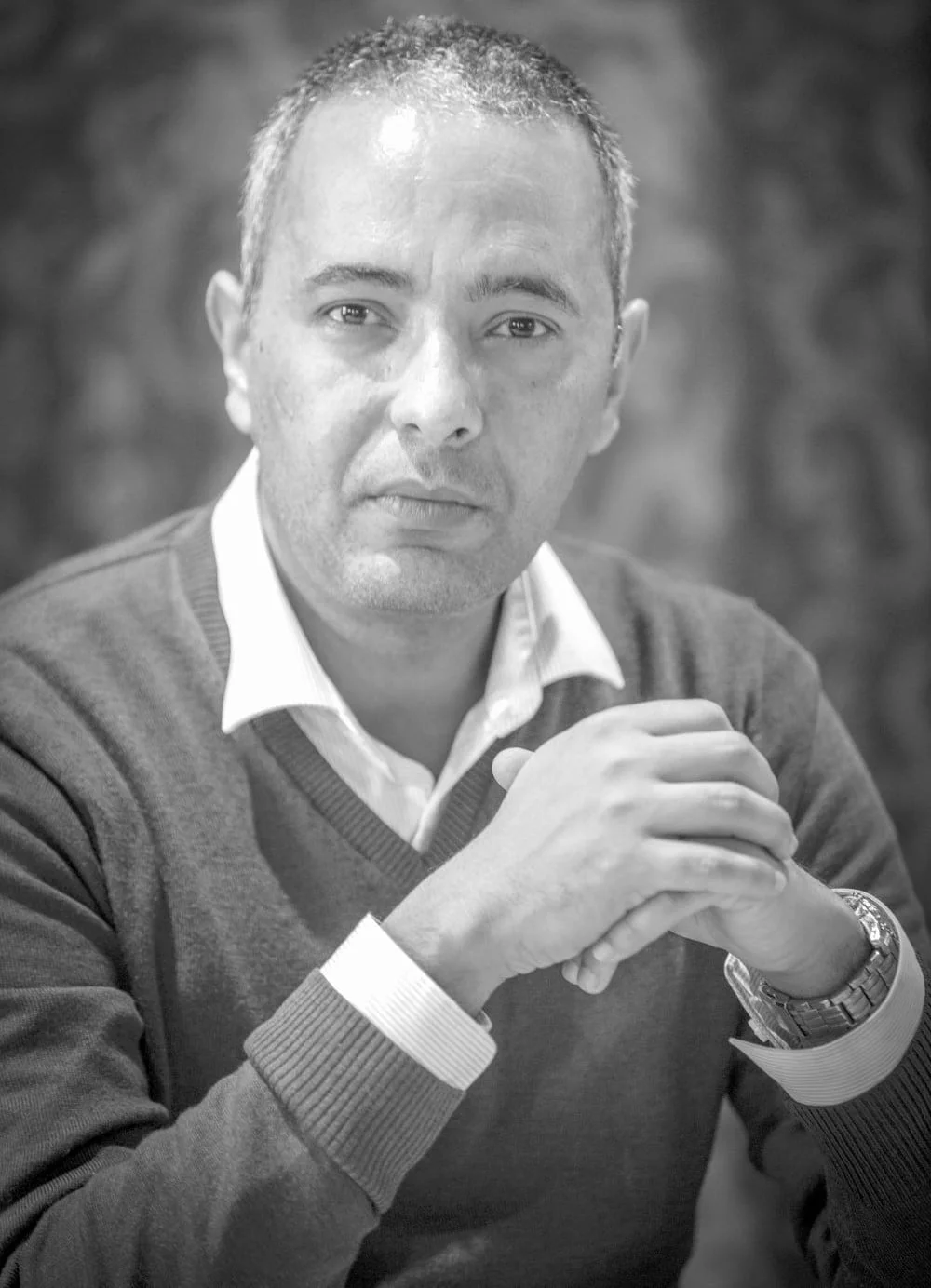
Kamel Daoud
- Algeria
- Zu Gast beim ilb: 2020
Algerian journalist and writer Kamel Daoud was born in Mostaganem in 1970. He first studied mathematics, then literature, and then began working for the French-language newspaper »Le Quotidien d’Oran« in 1994, where he served as editor-in-chief for eight years. He circumvented censorship restrictions by publishing many of his articles on Facebook.
In the early 2000s, Daoud began publishing his work in French, including »Minotaure 504« (2011), which was nominated for the Goncourt Prize in the short prose category. In 2013, his novel »Meursault, contre-enquête«, inspired by Albert Camusʼs »LʼÉtranger«, was published (»The Meursault Investigation«, 2015). The book gives an identity to the nameless Arab from »LʼÉtranger«, who was shot in 1942 by the protagonist Meursault in the midday heat on the beach in Algiers. Seventy years later, his brother tells the story of their motherʼs suffering, which eventually escalates into retaliation. The old, frustrated man becomes just as much a sufferer in the world as his brotherʼs murderer. Daoud’s expansion of »LʼÉtranger« not only counteracts the seclusion of the French colonial parallel world in Camus’ Algeria, but also criticizes fundamentalism in Algerian society. Among numerous awards, »Meursault« was awarded the Prix Goncourt. In his subsequent novel »Zabor ou Les psaumes« (2017; tr. Zabor or the Psalms) Daoud follows Ismaëlʼs childhoos in Algeria. Ismaël, who lost his mother early and was expelled from his fatherʼs house, finds consolation in reading and eventually also in writing his own stories. This reveals his special power: as long as he writes about someone who is in agony, their life will be extended. Ultimately, he is brought to his dying father. Daoudʼs parable on the power of storytelling received the Prix Méditerranée in 2018. In his most recent publication »Le Peintre dévorant la femme« (2018; tr: The painter who devours women), Daoud deals with the world of the artist Pablo Picasso and the erotic nature of his work.
After men from North Africa and the Arab world were accused of sexual assault in Cologne on New Yearʼs Eve 2015/16, Daoud warned in »Le Monde« that the contradictions between Western and Islamic culture were too often downplayed and was subsequently accused by a group of French scholars of Islamophobia. In 2014, a Salafist imam had publicly demanded Daoud’s killing for his alleged critique of Islam. Daoud initially retired from journalism and then resumed work for various media outlets. A number of journalists and writers stood up for him and criticized the misuse of the word Islamophobia in social discourse. The author lives in Oran
Raïna raïkoum
Dar El Gharb
Oran, 2002
La Fable du nain
Dar El Gharb
Oran, 2003
Ô Pharaon
Dar El Gharb
Oran, 2005
LʼArabe et le Vaste Pays de ô…
Barzakh
Alger, 2008
Minotaure 504
Sabine Wespieser éditeur
Paris, 2011
Der Fall Meursault
Eine Gegendarstellung
Kiepenheuer & Witsch
Köln, 2016
[Ü: Claus Joste]
Mes indépendances
Chroniques 2010–2016
Éditions Barzakh et Actes Sud
Paris, 2017
Le Peintre dévorant la femme
Stock
Paris, 2018
Zabor
Kiepenheuer & Witsch
Köln, 2019
[Ü: Claus Joste]
